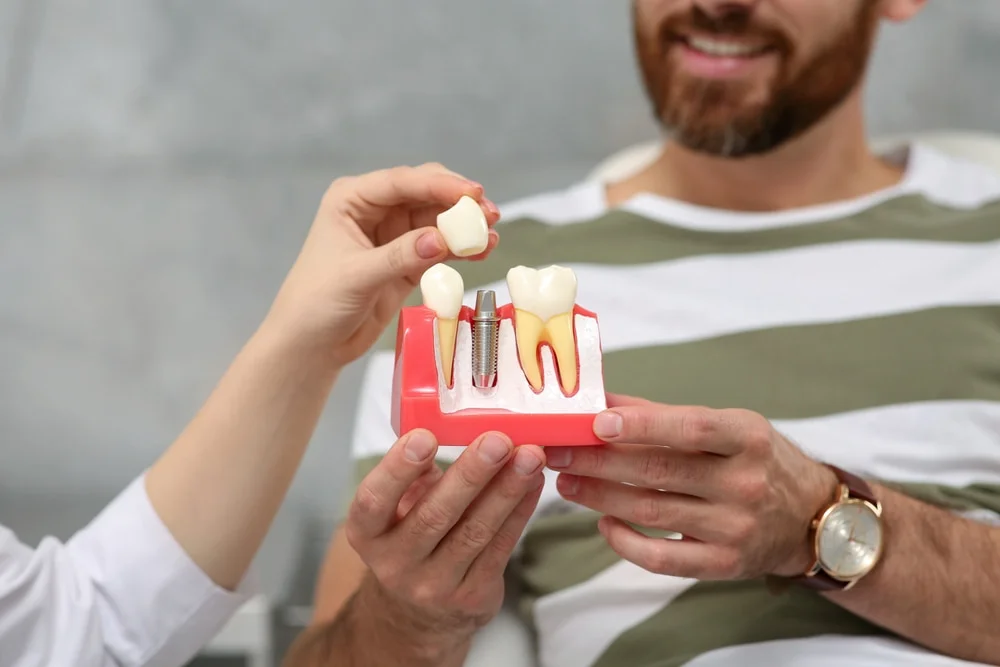Introduction
Dental implants have revolutionized the field of restorative dentistry, providing a permanent solution for missing teeth. Among the various types of implants, mini implants are gaining popularity due to their unique advantages and applications. This article will explore what mini implants are, their benefits, the procedure involved, and who might be an ideal candidate for this dental solution.
What are Mini Implants?
Mini implants, as the name suggests, are smaller versions of traditional dental implants. Typically measuring about 1.8 to 3.3 millimeters in diameter, mini implants consist of a titanium post that is surgically placed into the jawbone to serve as an anchor for artificial teeth. They are particularly useful for patients with insufficient bone density or those who seek a less invasive alternative to traditional implants.
Key Differences Between Mini and Traditional Implants
- Size: Mini implants are narrower and shorter, making them suitable for areas with limited bone availability.
- Placement: The surgical procedure for mini implants is often simpler and can be performed with local anesthesia, requiring less recovery time.
- Cost: Mini implants are generally more affordable than traditional implants, making them an appealing option for many patients.
Benefits of Mini Implants
1. Minimally Invasive Procedure
One of the most significant advantages of mini implants is the minimally invasive nature of the placement procedure. Since they require less bone removal and often no need for extensive grafting, patients typically experience less discomfort and a faster recovery time.
2. Immediate Loading
Mini implants can often support a dental prosthesis immediately after placement. This immediate loading capability means that patients can leave the dental office with functional teeth on the same day, enhancing their quality of life without prolonged waiting periods.
3. Cost-Effective Solution
For those who may find traditional implants financially prohibitive, mini implants offer a more budget-friendly option. They generally cost less than their larger counterparts, making them accessible for a broader range of patients.
4. Enhanced Stability for Dentures
Mini implants are particularly beneficial for individuals with dentures. They provide additional stability and support, preventing the common issues of slipping or discomfort that can occur with traditional dentures. This added support allows patients to eat and speak more confidently.
5. Bone Preservation
Because mini implants require less invasive surgical procedures, they also help preserve surrounding bone tissue. This preservation is crucial for maintaining the overall structure of the jaw and preventing further bone loss.
The Procedure for Mini Implants
The process of getting mini implants involves several steps:
1. Consultation and Assessment
Before any procedure, patients will undergo a comprehensive dental examination, which may include X-rays or 3D imaging to assess bone density and determine the best treatment plan.
2. Treatment Planning
Based on the assessment, the dentist will create a personalized treatment plan, discussing the number of mini implants needed and the type of prosthesis that will be used.
3. Surgical Placement
The mini implant placement is performed under local anesthesia. The dentist makes a small incision in the gum tissue and creates a pilot hole in the jawbone. The mini implant is then inserted and secured in place. The entire procedure typically takes about an hour, depending on the number of implants being placed.
4. Healing Period
After placement, a healing period of several weeks is usually recommended. During this time, the bone integrates with the implant, ensuring stability.
5. Attachment of the Prosthesis
Once the healing period is complete, the dental prosthesis (such as a crown or denture) can be attached to the mini implants, restoring functionality and aesthetics.
Ideal Candidates for Mini Implants
Mini implants are suitable for a wide range of patients, including those who:
- Have lost one or more teeth and seek a permanent solution.
- Are unable to undergo traditional implant surgery due to bone loss or other health concerns.
- Wear dentures and experience discomfort or instability.
- Want a cost-effective alternative to traditional implants.
However, certain individuals may not be ideal candidates for mini implants, including:
- Those with severe gum disease or uncontrolled diabetes.
- Individuals who smoke excessively, as smoking can impede healing.
- Patients with specific medical conditions that may affect bone healing.
Post-Operative Care and Maintenance
After receiving mini implants, proper care is essential for their longevity. Patients should:
- Maintain good oral hygiene by brushing and flossing regularly.
- Attend regular dental check-ups to monitor the condition of the implants.
- Avoid hard foods that may put excessive pressure on the implants, especially during the initial healing phase.
Conclusion
Mini implants represent a versatile and effective option for individuals seeking dental restoration solutions. Their minimally invasive nature, immediate loading capabilities, and cost-effectiveness make them an attractive alternative to traditional dental implants. By consulting with a qualified dental professional, patients can explore whether mini implants are the right choice for restoring their smiles and enhancing their quality of life. With the right care, mini implants can provide a durable and functional solution that meets the needs of a diverse range of patients.

